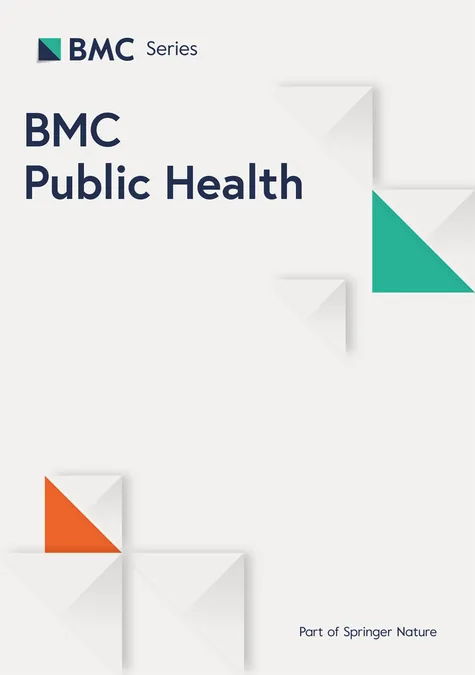
Unveiling the Hidden Epidemic: Anxiety Among Hypertensive Patients in Marrakech
2025-03-28
Author: Arjun
Introduction
In Marrakech, anxiety is a silent adversary affecting one-third of patients grappling with hypertension, a growing public health crisis impacting millions around the globe. This study revealing the pressing need for a dual approach in treating hypertension—addressing both physical and mental health—highlights the overlooked connection between these conditions among patients in the region.
Study Overview
Between May 2021 and December 2022, a comprehensive study assessed the anxiety levels among 1,053 hypertensive individuals receiving care in primary healthcare centers across Marrakech. Participants provided detailed information through face-to-face questionnaires, allowing researchers to collect vital socio-demographic and clinical data. The Generalized Anxiety Disorder Scale (GAD-7) facilitated an objective evaluation of self-reported anxiety, while multivariate logistic regression revealed key risk factors associated with these mental health challenges.
Key Findings
The results were startling—348 participants, accounting for 33.1%, reported experiencing anxiety symptoms. Notably, the majority (86.5%) were women, with a mean age of 61.5 years. Risk factors contributing to anxiety included elevated stress levels, family histories of hypertension, lack of social support, urban living conditions, dietary shortcomings, and reported pain.
The prevalence of anxiety disorders is not merely a local concern but a global epidemic; approximately 1.28 billion people live with hypertension worldwide, with 82% residing in low- and middle-income countries. In Morocco, this is exacerbated by urbanization and lifestyle changes, which have amplified the rates of non-communicable diseases, including hypertension.
Broader Context
Globally, about 7.3% of individuals suffer from mental disorders, with anxiety being a leading issue. The WHO describes anxiety as an overwhelming sense of impending doom, leading to agitation and helplessness. Previous research has established a strong correlation between elevated anxiety and hypertension, indicating a cycle that often worsens patient outcomes.
In Marrakech, a similar trend emerges, with untreated anxiety contributing to hypertension complications and increased healthcare costs. Without appropriate mental health interventions, patients face increased rates of non-adherence to treatment, further exacerbating their physical health issues.
Research Methodology
To gain insights into this pressing issue, researchers employed a two-stage sampling method targeting hypertensive patients aged 18 and above receiving treatment for six months. The responses were analyzed using statistical tools and methodologies, ensuring a robust exploration of the connection between anxiety and hypertension.
The comprehensive questionnaire captured not only demographic factors (age, sex, and living conditions) but also behavioral and clinical characteristics, providing an unfiltered look into the lives of these individuals.
Implications for Treatment and Policy
This study highlights the necessity for healthcare providers to integrate mental health assessments into routine care for hypertensive patients. Considering the multifaceted nature of these health challenges, a holistic treatment approach could greatly improve patient outcomes.
Moreover, public health policies must prioritize both mental and physical wellness, targeting social factors that contribute to anxiety. Increased access to green spaces, community support initiatives, and nutrition education could alleviate some of the symptoms reported by participants.
Conclusion
Anxiety in hypertensive patients is a growing concern that demands urgent attention from healthcare providers and policymakers alike. This groundbreaking study shines a light on the critical need for an integrated approach to treatment, emphasizing the importance of addressing both hypertension and anxiety to enhance the quality of life for those affected.
As we look ahead, concerted efforts to improve mental health care in conjunction with traditional hypertension management strategies could pave the way for a healthier future for individuals in Marrakech and beyond. Don't miss out on future studies—this might be just the beginning of a much larger conversation about mental health in chronic illness management!


 Brasil (PT)
Brasil (PT)
 Canada (EN)
Canada (EN)
 Chile (ES)
Chile (ES)
 Česko (CS)
Česko (CS)
 대한민국 (KO)
대한민국 (KO)
 España (ES)
España (ES)
 France (FR)
France (FR)
 Hong Kong (EN)
Hong Kong (EN)
 Italia (IT)
Italia (IT)
 日本 (JA)
日本 (JA)
 Magyarország (HU)
Magyarország (HU)
 Norge (NO)
Norge (NO)
 Polska (PL)
Polska (PL)
 Schweiz (DE)
Schweiz (DE)
 Singapore (EN)
Singapore (EN)
 Sverige (SV)
Sverige (SV)
 Suomi (FI)
Suomi (FI)
 Türkiye (TR)
Türkiye (TR)
 الإمارات العربية المتحدة (AR)
الإمارات العربية المتحدة (AR)